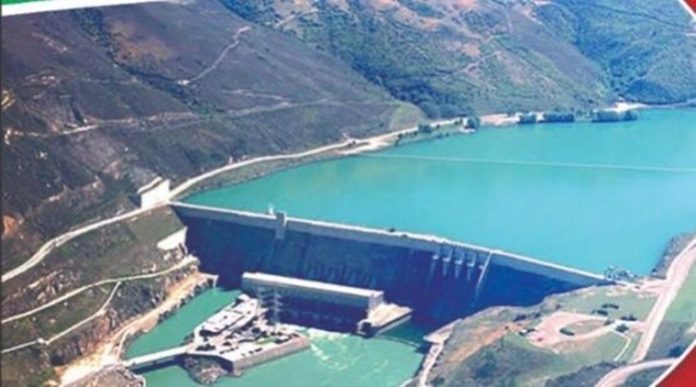New Delhi (NVI): Construction of Diamer-Bhasha Dam, being built by Pakistan with the help of China in Gilgit-Baltistan, began today, despite protests by the local people and India which says Pakistan has no right to undertake any such activity in the Indian territory illegally occupied by it.
The dam project in Diamer district of Pakistan-occupied Gilgit-Baltistan marks a major Chinese footprint in the region which is originally a part of undivided Jammu and Kashmir.
Pakistan signed a contract with China two months back for construction of the dam at the cost of Rs 442 billion. After the agreement, the local people of Gilgit-Baltistan protested, particularly against Pakistan government’s Land Reforms Act under which their lands would be acquired for the project.
Citizens of Gilgit-Baltistan aired their anger on the ground as well as social media, saying it was Pakistan’s move to disempower them and grab their lands with the help of Chinese muscle power.
“They can’t snatch our ancestors land through their greedy acts like that of ‘Land Reforms Act’. People of #GilgitBaltistan will unitedly raise their voice against any such forceful oppression,” said a tweet by Sayed Ali Baig, a prominent resident of GB.
Another resident, Ejaz Hussain Nasiry said, “Land Reforms Act is a move to change our demography. One such example is Gilgit city where the locals are almost close to become minority due to abolishing of SSR and now the Land Reforms Act will add fuel to the fire”.
The dam will be built jointly by China Power, a State-run company, and Pakistan’s Frontier Works Organisation (FWO), the commercial arm of the country’s all-powerful Army. In the joint venture, the Chinese company has 70% stake, while FWO has the remaining 30% stake.
After the contract was signed, India’s External Affairs Ministry registered New Delhi’s objections to the project.
“Our position is consistent and clear that the entire territory of the union territories of Jammu and Kashmir and Ladakh have been, are, and will continue to be an integral and inalienable part of India,” External Affairs Ministry spokesman Anurag Srivastava had said.
“We have consistently conveyed our protest and shared concerns with both China and Pakistan on all such projects in the Indian territories under Pakistan’s illegal occupation,” he said.
The dam project was conceived some years back and India had registered its protest even then.








